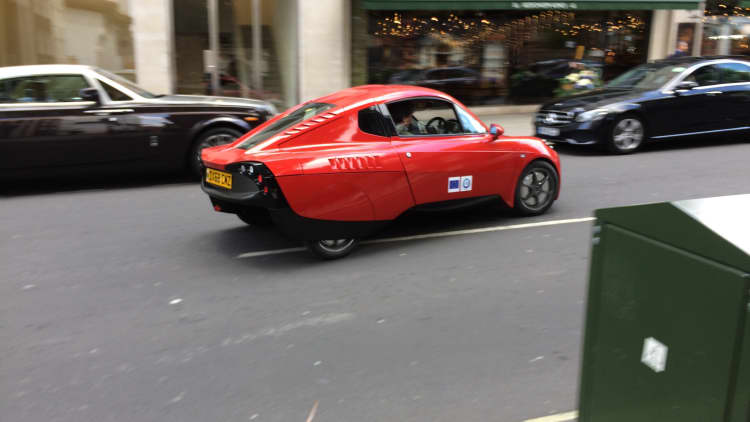
From battery electric cars and bike share schemes to on-demand taxi services booked via smartphone, the way we move around is changing.
In the years ahead, hydrogen-fueled vehicles could also have a part to play in our planet's transport mix. The European Commission has described hydrogen as an energy carrier with "great potential for clean, efficient power in stationary, portable and transport applications."
London is already home to a number of hydrogen buses, while European railway manufacturer Alstom's hydrogen fuel cell train entered into passenger service in September 2018.
Major automobile manufacturers that have dipped into the hydrogen fuel cell market include Toyota and Honda.
In Wales, a firm called Riversimple is developing a two-seater car which uses a hydrogen fuel cell. An engineering protoype of the car, which is called the Rasa, weighs 580 kilograms, according to the company. The average weight of a small car, such as a Nissan Micra, is more than double this.
Each wheel of the Rasa hosts an electric motor, and it has clocked speeds of more than 60 miles per hour. Water is a by-product of the process used to power the car.
"(A) hydrogen powered car is effectively an electric car, so you still have an electric motor and the car is still quiet," Nicolas Sergent, who works on design and engineering at Riversimple, told CNBC's Sustainable Energy.
"But instead of running off a battery which stores the electricity chemically, it's running off a fuel cell, a hydrogen fuel cell," he added.
While there are benefits when it comes to hydrogen fuel cell vehicles, cost and a lack of charging infrastructure could potentially hamper widespread adoption.
Riversimple's founder sought to emphasize the benefits, however.
"Refueling a hydrogen car requires much less behavior change than battery electric cars," Hugo Spowers said. "It's a very similar experience to filling a petrol car," he added.
"It takes three or four minutes and you drive away with a full tank of gas, which gives you the same sort of range as a petrol engine car would have," he went on to say.




